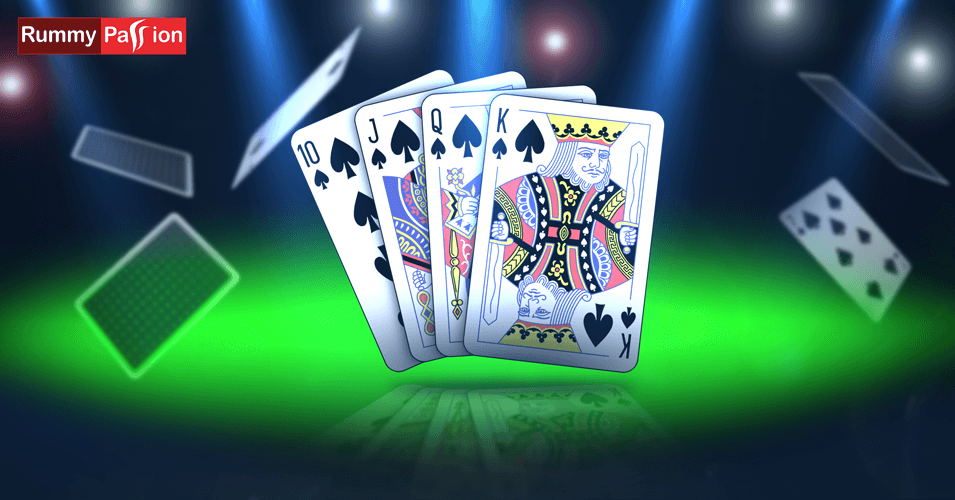
A Beginners Guide to What is Rummy
What is Rummy?
Rummy has long been one of the most beloved card games nationwide. Its blend of strategy, quick thinking, and skilful decision-making has captured the hearts of players from various backgrounds. Whether you’re playing casually with friends or testing your skills online, Rummy offers endless excitement and mental stimulation.
The Basics of Rummy
Rummy is a group of matching-card games renowned for their simplicity and appeal. The core objective is to form valid sets and sequences from the cards dealt to you. Played between 2 to 6 players, it creates an engaging environment where strategy prevails. While Rummy comes in various forms, all versions share common principles: melding cards and aiming for a winning hand.
Rummy Game Components
To play Rummy, you need:
- A deck of cards: Most variations require a standard 52-card deck. Some include two decks for larger games.
- Jokers: In many Rummy variations, jokers serve as wild cards, substituting for any missing card in a sequence or set.
- Score sheets: These are useful for tracking points over multiple rounds, especially in longer games.
Rummy Setup and Dealing
To start a Rummy game, players sit around a table, each taking turns. One player is assigned as the dealer, responsible for shuffling and dealing the cards. Each player receives a set number of cards (13 for Indian Rummy). The remaining deck is placed face down, forming the draw pile, while the top card is placed face up as the discard pile.
Rummy Passion brings you the most engaging formats of this game: Pool Rummy, Deals Rummy, and Points Rummy. Now, let’s explore the three main variations of Indian Rummy that make the game even more exciting.
1. Pool Rummy: The Survival of the Fittest
Pool Rummy is a captivating variant of the traditional 13-Card Rummy, where the objective is to outlast your opponents by keeping your score as low as possible over multiple rounds. This format tests your endurance and strategic acumen, with two popular variants: 101 Pool and 201 Pool.
- 101 Pool: Players are eliminated from the game when their score reaches 101 points. The last player remaining emerges as the winner.
- 201 Pool: Similar to the 101 Pool, but with a higher elimination threshold—players are out once they reach 201 points.
The essence of 13 Card Pool Rummy lies in minimising your points while tactically forcing your opponents to accumulate theirs. Every move matters, as it can have a significant impact on the outcome. Mastering the rules of 13 Card Pool Rummy will enhance your gameplay and give you a competitive edge.
2. Deals Rummy: A Fixed Challenge
Deals Rummy is an exciting variation of the classic 13 Cards Indian Rummy, specifically designed for 2 players. This online version offers a refreshing twist with two competitive formats: Best of 2 Deals and Best of 3 Deals.
In Deals Rummy, the gameplay closely resembles Points Rummy, but with a crucial distinction—the winner is determined by the total of chips accumulated at the end of all deals. It’s essential to understand that chips and points serve different roles in this format and should not be confused.
This unique structure provides a strategic edge, making 13 Cards Indian Deals Rummy a preferred choice for players seeking a more calculated and disciplined gaming experience. Mastering the rummy rules and strategies of this format will significantly enhance your gameplay, allowing you to navigate each deal with precision and skill.
3. Points Rummy: Quick and Intense
Points Rummy, often referred to as 80 Points Rummy, is the fastest and most exhilarating format of the 13 Card Online Rummy Game, making it a favourite among players who crave quick, high-energy matches. This version is the most popular in India, with its speed being the primary reason for its widespread appeal. A typical 2-player Points Rummy game concludes in just 2-3 minutes, making it the preferred choice for around 40-45% of regular rummy enthusiasts.
The Points Rummy Rules are straightforward, making it an ideal format for both newcomers and seasoned players. The objective is simple yet challenging: create valid sequences and sets before your opponent, and be the first to declare your hand. Mastering these rules can significantly enhance your gameplay, allowing you to enjoy the fast-paced excitement that Points Rummy offers.
Points Rummy is played on 2-player or 6-player tables with 1 or 2 decks of 53 cards, including Jokers. Its flexibility lets players join tables with point values from 10 paise to Rs. 250, appealing to all skill levels. The fast-paced nature is its biggest attraction, where every second counts, testing your speed, strategy, and sharp thinking.
Rummy Gameplay
Rummy is a turn-based game, with each player having a clear structure to follow:
- Drawing: Players start their turn by drawing a card, either from the draw pile or the discard pile.
- Discarding: After drawing, players must discard one card to end their turn.
- Forming Sets and Sequences: Players work to create valid combinations—either a set (three or four of the same rank) or a sequence (three or more consecutive cards of the same suit).
- Using Jokers: In games that include jokers, these wild cards can be used to complete sets or sequences.
Winning in Rummy
Players must form valid sets and sequences with the cards they are dealt to win in rummy. The primary objective is to arrange all the cards into at least two sequences, with one being a pure sequence (a sequence without using jokers)
- Objective: The primary goal in Rummy is to arrange all 13 cards into valid combinations of sets and sequences. To declare a win, a player must have at least:
- One pure sequence (a consecutive sequence of cards from the same suit, without using a joker).
- The remaining cards must be arranged into either valid sequences or sets (sets of three or four cards of the same rank but different suits).
- Declaration: Once all cards are arranged properly, the player can make a declaration. The hand is then validated, and if the combinations are valid, the player wins the game.
Scoring in Rummy
- Card Values:
- Face cards (King, Queen, Jack, Ace): 10 points each.
- Number cards (2-10): Face value (e.g., 7 of hearts = 7 points).
- Jokers (Wild/Printed): Zero points, as jokers are used to complete sets or sequences.
Points Calculation
- The losing players’ points are calculated based on the unmatched cards they hold in hand.
- If a player hasn’t formed a pure sequence, all cards are counted for points.
- The winner’s score is usually zero because they don’t have any unmatched cards.
Maximum Points:
The highest a player can score is 80 points, no matter how high the unmatched card points add up.
This is the general way of scoring and winning in the Points Rummy variant. Scoring might differ slightly in other Rummy variants like Deals Rummy or Pool Rummy, but the basic structure remains similar.
Popular Rummy Variations
Rummy has evolved into multiple variations over the years, each bringing its unique twist to the game:
Gin Rummy: A fast-paced, two-player version where players aim to reduce their deadwood by forming sets and runs.
Indian Rummy: A version popular in India, where 13 cards are dealt to each player, and a mix of skill and strategy is required to form sequences and sets.
Contract Rummy: Played over a series of rounds, each round introduces different requirements for sets and sequences.
Rummy Strategies for Beginners
If you’re new to rummy and wondering how to play rummy effectively, starting with a clear strategy can greatly improve your gameplay. Understanding the basics and following a structured approach will enhance your skills and enjoy the game more.
- Hand organisation: Always arrange your cards into potential sets and sequences from the beginning.
- When to pick from the discard pile: Only take from the discard pile if it immediately fits into your hand.
- Observe your opponents: Keep track of the cards your opponents are picking or discarding, as it gives you insight into their strategy.
Online Rummy: Bridging Tradition and Technology
The rise of digital platforms has significantly transformed online and offline rummy, making it more accessible to a global audience. Online rummy offers the thrill of traditional gameplay with the added convenience and innovative features that enhance the overall experience.
Differences Between Online and Offline Play
While the core rules of Rummy remain the same in both versions, the online format brings distinct advantages:
Time Limits: Unlike offline games, online Rummy introduces time constraints to ensure quicker gameplay, making each match more dynamic and engaging.
Convenience: Players can enjoy the game anytime and anywhere, eliminating the need for physical gatherings.
Automation: Online platforms automatically shuffle cards, distribute them, and calculate scores, reducing the chances of human error.
Safety and Fairness in Online Rummy
To ensure a safe and fair playing environment, reputable online Rummy platforms implement advanced technologies:
Random Number Generators (RNGs): Certified RNGs are used to shuffle and deal cards, ensuring that each game is unbiased and random.
Data Encryption: Platforms use encrypted servers to protect personal and financial information, making online Rummy a secure option for players.
Online Rummy retains the excitement of traditional gameplay while offering added safety, fairness, and ease, making it the perfect blend of entertainment and security.
Conclusion
Rummy is a dynamic card game that combines strategy, skill, and mental agility, making it a favourite for both casual and competitive players. Its various versions coupled with the rise of digital platforms have broadened its appeal to a diverse audience.
Whether you’re just starting or a seasoned player, Rummy offers endless opportunities to challenge your decision-making skills, adapt your strategies, and enjoy hours of engaging entertainment. The game continues to evolve, offering something new for everyone, no matter how you choose to play it online or offline.








